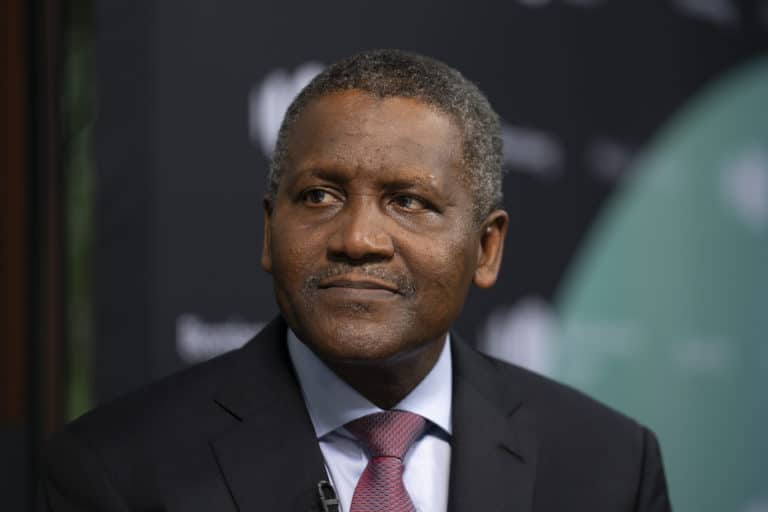
He added that Nigeria’s economy can be turned around “within a few months” as the “issues are not that bad.”
The business mogul expressed optimism after President Bola Tinubu inaugurated a 31-member Presidential Economic Coordination Council at the Aso Rock Villa, Abuja, on Thursday.
Thursday’s inauguration comes three months after the President established the committee on March 27, 2024.
The committee comprises Tinubu, Vice President Kashima Shettima, Senate President Godswill Akpabio, the Chairman of the Nigerian Governors Forum, Governor Abdulrahman Abdulrazaq of Kwara State, and the Governor of the Central Bank of Nigeria Governor, Yemi Cardoso.
The PECC also comprises 13 persons drawn from the organised private sector, including the Chairman of Dangote Group, Aliko Dangote; UBA Chairman, Mr. Tony Elumelu; BUA Founder, Abdulsamad Rabiu, among others, who would serve on the Council for one year.
Speaking, Dangote said, “The private sector and the public sector will actually work together to make sure that we better a lot of our people…we are going to sit down and advise the government on the issue kind of policies that government should roll out.
“Most of these things, we have them. They have already been discussed over and over. It is a matter of implementation. I think the choice of people who are on the PECC is good enough to advise the government on how to implement it.
“Our own from the private sector is to…invest heavily and create jobs. The government doesn’t really create jobs; what they do is to give us the right policies. I keep saying our issues are not that bad, this economy can be turned around within a few months and I, think we are on that way. I thank the President for inaugurating this Council. We will start working immediately, and I can assure you that you will see a lot of changes coming.”
Meanwhile, Tinubu said his administration is determined to, in the next few months, increase crude oil production to two million barrels per day and generate more electricity for Nigerians.
He described Nigeria’s current power generation and crude oil production as’ shameful’.
Tinubu told the private sector players, “As a nation, it is so shameful that we have about 4.5 gigawatts. We must increase our oil production too to 2 million barrels per day within the next few months. Remove all barriers hindering investments into the sector to enhance competitiveness. We’ve had a challenge thrown at us and all of us will have to be careful.
Despite being Africa’s largest oil producer, Nigeria has recently struggled to meet its OPEC production quotas.
The government has blamed challenges such as pipeline vandalism, oil theft, and operational inefficiencies for the persistent shortfalls.
For instance, in May 2024, crude oil production averaged only 1.25 million barrels per day, well below its OPEC+ quota and the government’s target of 1.7 million bpd for budgetary purposes.
Similarly, Nigeria’s power generation capacity has remained critically low—4.5 gigawatts- which is inadequate for the industrial needs of its over 200 million citizens. This has contributed to frequent power outages and stifling economic productivity.
Nonetheless, Tinubu says his administration is “determined” to partner with the private sector to overcome these hurdles.
“In the face of it, we have the change of energy security; we need to work together to include power, oil and gas to increase our own grid’s electricity. We are determined to do that with your cooperation, collaboration and recommendation,” he said.
The President also emphasised food security, describing it as “essential.” He reminisced on his policies from months ago, saying, “I have declared a state of emergency on food security and we must increase our staple crops by smallholder farmers; we are going to improve on mechanization.”
Citing the Sokoto-Badagry road announced at the last Federal Executive Council meeting on June 25, Tinubu expressed hope that part of his administration’s infrastructural development is “within reach.”
“If you look at the Sokoto-Badagry road, there are about 36 areas dams that we can tap electricity from and generate additional electricity, and help agriculture and create arable farmland.
“I am ready to listen to you in all of that. You have seen us from close quarters, but we are one. We feel the market pinches differently, including the price of food and all of that.
“I believe Bismarck Rewane will be able to make additional suggestions on what we are lacking and what we should do to stabilise this economy. The manufacturing stabilisation fund, MSMEs too, and other fiscal measures have been narrated; I just want to say thank you for responding to this call,” he said.





